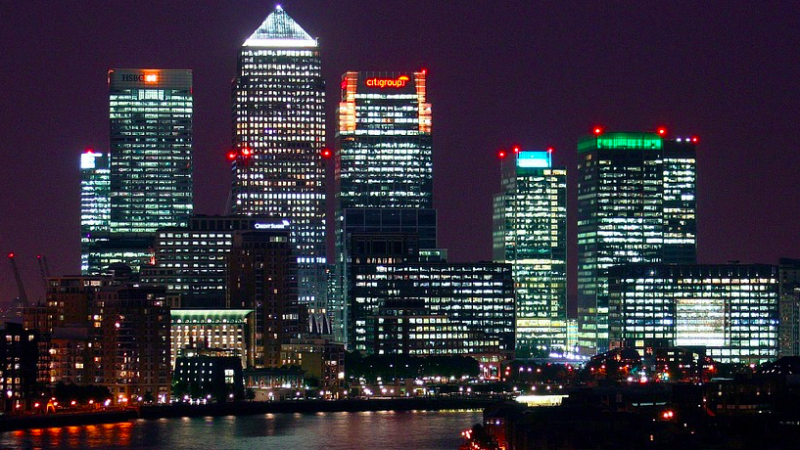The government's latest green paper tries to give the impression of a strong response to a tide of corporate abuse – don't hold your breath.

A wise man/woman once said that “insanity is doing the same thing, over and over again, but expecting different results”. That applies to the government’s latest green paper titled “Insolvency and Corporate Governance”.
It tries to address the corporate governance failures making daily headlines and reminding people that the directors of large and advisers are picking our pockets, pension schemes and the public purse with impunity.
BHS Carillion, Bernard Matthews, the banking crash, the Paradise Papers, the Panama Papers, rip-off practice by energy, water, train and mobile phone companies, and excessive executive pay are just some of the evidence.
What is the government going to do? Not much, judging by the green paper published last week.
A key problem is that directors treat corporations as their private fiefdoms and their will is rarely questioned. One possibility is to require large companies to have significant stakeholder representation from workers, suppliers and customers on company boards. But the green paper makes no mention of such possibilities.
The green paper repeats the myth that shareholders are owners of companies would somehow invigilate directors. It ignores the fact that shareholders have only a short-term interest in companies and function more as traders and speculators.
They exert pressure on directors to secure their returns. In its assessment of the 2007-08 banking crash, the UK’s Banking Standards Commission concluded that “shareholders failed to control risk-taking in banks, and indeed were criticising some for excessive conservatism”.
The government wants institutional investors to take a leading role (haven’t we heard that before?), but at best they will only protect their own interests.
In relation to the institutional investors, the Banking Standards Commission concluded that they “were scarcely alert to the risks to their investments prior to the crash, but were mesmerised by the short-term returns”.
In view of these inherent shortcomings, it is hard to see how shareholders can be mobilised to protect the interests of employees and suppliers.
Any protection for stakeholders requires a rethink on the nature and purpose of a corporation and directors’ duties. The shareholder-centric model of corporate governance is reinforced by Section 172 of the Companies Act 2006.
It states that “A director of a company must act in the way he considers, in good faith, would be most likely to promote the success of the company for the benefit of its members as a whole …”.
This prioritises the interests of shareholders above all others. The law then says that in order to improve shareholder benefit (read wealth) directors need to have regard for the interests of employees, suppliers, customers, the community and the environment.
This law cannot protect stakeholder interests unless shareholders sue companies and directors for failing to protect the interests of employees and suppliers. It is hard to find any examples of that.
In the absence of counterweights to represent the interests of other stakeholders, directors of BHS and Carillion left large deficits on employee pension schemes whilst maximising returns to shareholders through the payment of dividends and related party transactions.
Yet government is clinging on to the shareholder-centric model of corporate governance and therefore cannot address corporate abuses.
The Banking Standards Commission recommended that company law should be changed to remove shareholder primacy in respect of banks, and require directors to ensure the financial safety and soundness of the company ahead of the interests of its shareholders. The government has chosen to ignore such recommendations.
The green paper also talks about the possibilities of strengthening laws on the payment of dividends. It also notes that directors may asset-strip or sell struggling companies to the detriment of creditors and employees.
It wants liquidators to take action to clawback monies for the benefit of creditors and disqualify directors. The legal hurdles for such measures are not discussed. However, none of this can achieved without a strong and independent regulatory system.
The UK does not have a central enforcer of company law. The current system is highly fragmented and incapable of dealing with abuses and disciplining large companies.
For example, there are 29 regulators dealing with some aspect of the financial sector, at least six dealing with auditors and seven dealing with insolvency practitioners.
Some aspects of the company law fall to the Financial Reporting Council and Competition and Markets Authority and large areas seem to have no obvious regulator. Here is an example.
Companies such as Dunelm, Hargreaves Lansdown and Domino’s Pizza have acknowledged that they paid illegal dividends. How widespread is the problem and what might be their consequences for employees, suppliers and pensions schemes?
In the absence of a central enforcer the buck stops with the government. In response to a parliamentary question the Business Secretary replied: “The Department is not responsible for carrying out checks on dividends paid by companies to ensure that they do not exceed their distributable reserves”. Who is?
The consultation paper is an attempt to give the impression that the government is responding to the tide of corporate abuses. However, the reforms as presently conceived will deliver little, if anything, as they ignore fundamental questions about the nature and purpose of corporation, its regulation and accountability to diverse stakeholders.
Prem Sikka is Professor of Accounting at University of Sheffield and Emeritus Professor of Accounting at University of Essex. He tweets here.
Left Foot Forward doesn't have the backing of big business or billionaires. We rely on the kind and generous support of ordinary people like you.
You can support hard-hitting journalism that holds the right to account, provides a forum for debate among progressives, and covers the stories the rest of the media ignore. Donate today.



